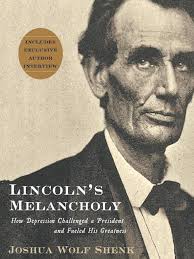The author on a history of depression and OCD that tends to come just in time for Christmas, why that is and how he’s mostly gained the upper hand.
Mood music:
Obsessive-Compulsive Disorder, OCD, is an anxiety disorder and is characterized by recurrent, unwanted thoughts (obsessions) and/or repetitive behaviors (compulsions). Repetitive behaviors such as handwashing, counting, checking, or cleaning are often performed with the hope of preventing obsessive thoughts or making them go away. Performing these so-called “rituals,” however, provides only temporary relief, and not performing them markedly increases anxiety. — National Institute of Mental Health
With a condition like that, Christmastime was destined to be a pain in the ass for me. A big one at that.
Appropriately, it was this time of of year — in 2006 — when I was first diagnosed with it.
I always suspected something wasn’t right with me, but I always chalked it up to history. Rough things have happened during the holidays.
Right before Thanksgiving, in 1996, by best friend committed suicide, the victim of what I now understand to be a medical scourge that few understand.
Right after the holidays, on Jan. 7, 1984, my older brother died from asthma complications.
Then there were those November-December six-week stays in the hospital in 1978, 1979 and 1980, when I was first afflicted with a then-little-known scourge called Chron’s Disease.
In between, there was a lot of instability at home, as my parents’ marriage disintegrated into bitter divorce.
Most of us have similar memories that come home to roost during the holidays. After all, this IS supposed to be “the most wonderful time of the year.”
Interesting side note: In his excellent book “The Heroin Diaries,” which covers the diary he kept for a year during the deepest depths of a heroin addiction, Nikki Sixx, bass player and songwriter for Motley Crue, scrawled his first entry on Dec. 25, 1986, a date I remember because I was at home, down for the count, following another flare up of the Chron’s Disease.
I also keep thinking about a former co-worker who just lost her daughter in a motorcycle crash, exactly one week before Thanksgiving.
Add it all up and the blue mood makes sense. But don’t feel sorry for me. In the grand scheme of things, I’m doing just fine. In fact, I can’t say I’d go back and change the past if given the chance. These experiences are part of who I am today. And the truth is, I like who I am today. There were a lot of years when I didn’t feel that way.
The turnaround began in 2004. The death of another close friend the previous May had sent me into a slow fall down the abyss and things started coming to a head at the start of the Christmas season.
I was living in fear of a cross-country business trip that was still at that point months away.
I was worried sick about my kids every time they came down with so much as a sniffle. Fear of loss. Irrational, but there.
I went batty one night because my wife wanted to go to a bar with one of her friends. I kept worrying that she might — just might — get into a car crash or something like that.
That, in fact, was the night I realized I needed help. I hooked up with a therapist and slowly began unraveling the insides of my soul, picking apart every bit of the past for clues on how I got this way.
Eventually the diagnosis came, and I started to get better. First I learned about all the coping tools. I started reading a lot about historical figures who overcame depression (a byproduct of OCD that goes hand in hand with anxiety and fear) to achieve big things.
After nearly two years of that, I started taking medication, which was like turning on a light I didn’t know existed.
Some people think they can go on medication and all will forever be right with the world. They are often wrong, though not always. For me, the mental inventory and developing of mental muscle had to happen before the drug could take care of the remaining problems.
It’s not perfect. As I said, I still go through black moods during the holidays. I still check my briefcase more than once to make sure my laptop is in there before leaving the office. When someone I know loses someone close, as happened recently with my former colleague, it hits me in the core. No matter that I barely knew her daughter. It just made my brain spin relentlessly about my own kids and the dangers that lurk around every corner.
At the same time, I have much, much more to be joyful for.
Most of the fear and anxiety I once felt is gone. Fear of travel has turned into a passion for getting on planes and finding stories wherever they may be.
The binge eating that was once a byproduct of the condition for me has been under control for more than a year. In fact, eliminating flour and sugar from my diet went a long way toward clearing further mental clutter.
Instead of obsessing about pleasing those I work for, I’m able to take joy in my work and everything else falls into place.
Life at the bottom of the well is not pretty. But there is always a way out.


